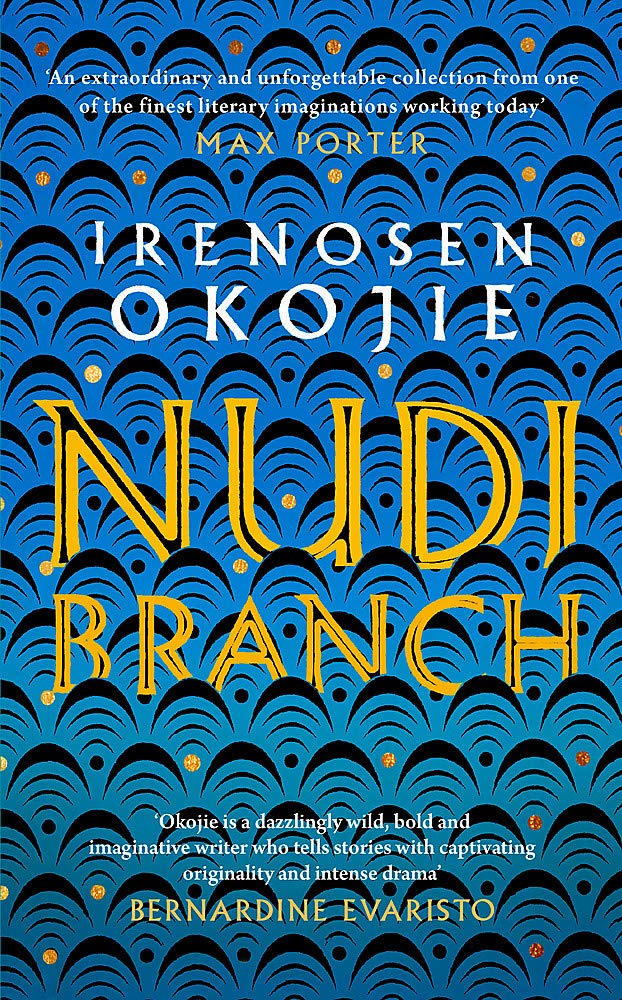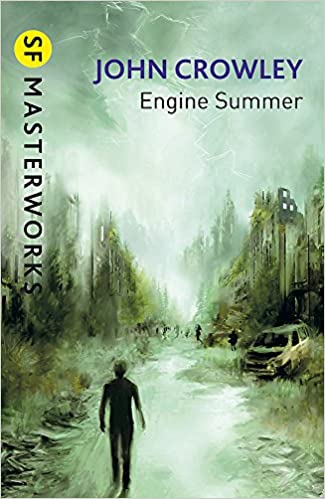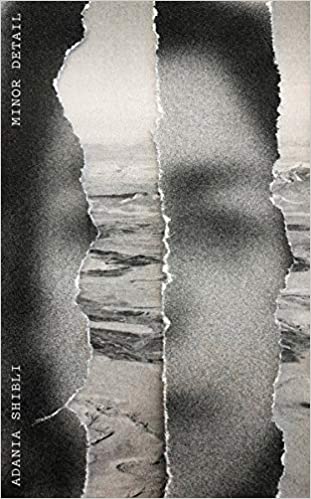First up this week comes Tim Maughan’s Infinite Detail, which I happened to be reading precisely now in an attempt to get ahead with my Clarke Award reading. What with the unusually long wait for this year’s submissions list, my ideas about what might be on the shortlist were uncharacteristically vague. My only solid hunch was Infinite Detail, and I was more than a little surprised to see it not just not make the cut but not even feature on the submissions list itself. That mystery was solved when someone kindly pointed out to me that there is currently no UK edition of Infinite Detail and so it is not eligible to be considered for the Clarke.
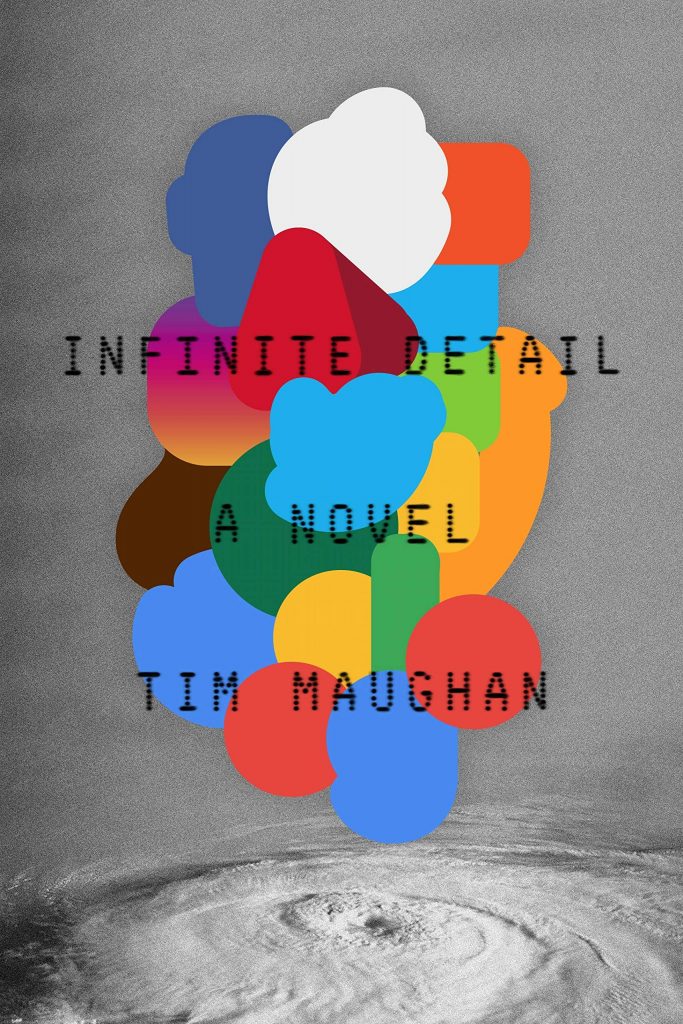
It seems counter-intuitive to me, to say the least, that a novel as British as Infinite Detail had to look to the USA to find its publishing home. There are some chapters (and beautifully executed they are, too) set in New York, but the bulk of the action and the whole sensibility of the novel are rooted in British culture, British politics and British social structures. Luckily, Infinite Detail is readily available to UK readers as a Kindle eBook, but even so, the idea that it will not be visible on bookshop shelves here does both the novel and its author a disservice, not to mention the incongruity of one of 2019’s most interesting SF novels being ineligible for what is arguably the world’s most respected and important juried science fiction award.
I am beginning to perceive a pattern here, though. There is a loose group – a new New Wave, if you like – of British writers whose work might best be described as the natural successor to the ‘mundane SF’ of the early 2000s. These writers are less interested in the widescreen formats of space opera, MilSF and interstellar travel, focusing instead on stories set mainly on Earth in a recognisable near-future, with an emphasis on contemporary politics and class inequalities, the impact of new technologies on ordinary lives. I would include within this group Maughan himself, from way back, but also Simon Ings, Matt Hill, Matthew de Abaitua, Carl Neville and James Smythe (whose 2014-Clarke-shortlisted The Machine stands as a key example of this kind of writing). I have been asking myself for a while now why it is that these writers are so much less visible than they ought to be, given the contemporary relevance and literary excellence of their output. Their work is (surely) right at the cutting edge of science fiction. It is using science fiction to engage directly with social and political questions, demonstrating SF as the radical mode of literature it has always been.
For genre publishing imprints not to acquire and promote this kind of science fiction seems short-sighted and again, counter-intuitive. These writers are important and talented and they deserve recognition. You could argue that it is in this brand of politically engaged, intellectually curious stripe of SF that the future of the genre lies. Especially in our current moment, audiences who look to science fiction for inspiration, information or even a warning about where future developments could take us are hungry for novels and stories that tread that uneven, liminal path between the present as it is experienced and the future as it might be. it seems ironic, to say the least, that both Maughan and Hill have seen their most recent work gain shortlist recognition in the USA, but not here at home.
Those who have been following Maughan’s career since his 2011 collection Paintwork, will find in his debut novel Infinite Detail everything they have been hoping for, and more. Set on his home turf of Bristol, Infinite Detail tells the intertwined stories of a number of individuals who find themselves present at a particularly brutal turning point in human history: the end of the internet. Incorporating story strands from immediately before and ten years after the crisis, one of the things I appreciated most about Maughan’s novel is that it refuses to take sides, concentrating its energies instead upon the human and environmental ramifications of an event that is viewed by some as catastrophe, by others as a new beginning. In the end – and Maughan is experienced and mature enough to know that the same could be said of most things – it is a bit of both. Infinite Detail is fast-paced without ever falling into the thriller trap, technologically articulate without descending into nerd-speak, intellectually rigorous whilst remaining accessible. What marks it out particularly though is its sense of place: the language, landscape and people of Bristol and especially their music are rendered with passion and that sense of familiarity that comes only through personal knowledge. More SF like this, please!
In one of those weird instances of reading synchronicity, my second book this week shares aspects of the first whilst seeming on the surface to be something completely different. Rupert Thomson’s Katherine Carlyle (2016) opens with its protagonist chucking her mobile into a river and leaving her laptop under a bridge, restored to its factory settings and labelled ‘free computer’. Kit is nineteen years old but for reasons that will become apparent she is also twenty-seven. Still grieving the loss of her mother, she has reached a state of personal alienation from which it seems the only escape route is to ‘go out on a limb,’ to cancel the life she is living and go in search of another. Taking her cue from a conversation randomly overheard between two strangers, she flies to Berlin, intent on tracking down a man she has never met.
There was a period of about a year when it seemed she had made a full recovery. Chemotherapy was over, and the operation to remove a tumour from her ovaries had been a success… Apart from the scar on her abdomen and the colour of her hair she was the same Stephanie Carlyle. That was how I saw it, anyway. But I was only twelve. Looking back, I think she behaved as if her time was limited, the pleasure she took in things disproportionate, nostalgic. Somehow the present was no longer the present, it was already past.
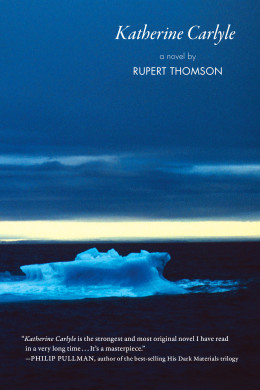
Kit drifts from place to place and from man to man: Klaus (a respectable orthodontist with an immaculate apartment and hidden tendencies to violence), Cheadle (a super-rich American with underworld contacts) and Oswald (who goes around carrying a piece of the Berlin Wall). For this first half of the novel, Katherine’s beauty acts as a passport and her quest is like a fantasy, the nineteen-year-old chosen princess moving through a potentially hostile world utterly without fear.
As the novel progresses, it gradually reveals itself as something other: magical and scintillating, an Odyssey with a female Odysseus, a story of time travel where the journeying mostly takes place within the space of the imagination. Thomson has Kit make repeated references to Antonioni’s 1975 film The Passenger and Katherine Carlyle shares many of the same dreamlike, uncanny resonances.
From the moment Katherine boards the train to Moscow the novel became a touchstone work for me, and the final sections in Archangelsk and Svalbard are like nothing I’ve read before. We understand that Kit is looking for somewhere cold – the winter temperatures in Svalbard range from -16 to – 46 degrees centigrade – in order to resolve the mystery and trauma of the eight years she spent in suspension as a frozen embryo. What she finds in the far-northern mining settlement of Ugolgrad is both more terrible and more revelatory than we could have imagined. The book’s ending could not be more perfect.
There’s a force at work, something I failed to anticipate. Since the place I’m heading for is clear in my mind only as an idea, and isn’t therefore, strictly speaking, a destination, I’m beginning to suspect that my eventual surroundings, whatever they might turn out to be, will have little or no relevance. The country I have chosen is hardly incidental, but this is not, at heart, a physical journey. It’s more like a journey back in time – or sideways, into another dimension.
Katherine Carlyle is speculative fiction in the most free-ranging, genre-bending sense of that term, hovering perpetually on the boundary between the lived and the imagined. Thomson’s language is note-perfect: never showy yet always elegant, always surprising, you won’t find a bad sentence from him here or ever. Turning the final page of Katherine Carlyle, I had to snap the book closed immediately, to shut myself in with it, to not look at or think about anything else for a while as I let myself assimilate what has immediately become a Book of My Heart.
The biggest mystery of all? Why are more people not reading and avidly discussing Rupert Thomson? His work shows a fascination with abstract concepts that makes it timeless, whilst remaining so deeply rooted in character it is always compelling as story. I remember feeling exactly the same sense of being overwhelmed and inspired when I read Death of a Murderer and then as now I think Rupert Thomson must be one of the most criminally underappreciated writers in Britain.
